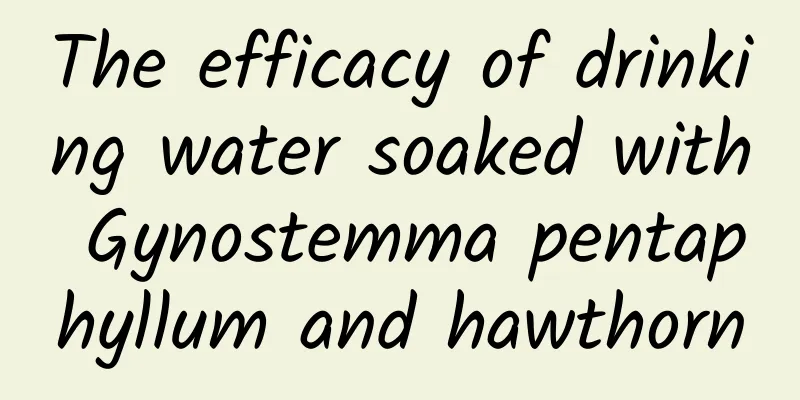The efficacy and function of Acer palmatum

|
Acer truncatum is a very common and frequently used traditional Chinese medicine. It has unique effects and functions in treating many diseases. Here we will tell you in detail about the effects of some traditional Chinese medicine Acer palmatum. 【Alias】 Small-leaved five-cornered maple, Acer truncatum, and willow-leaf maple. 【source】 Medicinal material source: branches and leaves of Acer palmatum of the Aceraceae family. [Original form] Acer palmatum is a small deciduous tree. The bark is dark gray; the twigs are thin, the current year's branches are purple or purple-green, and the perennial branches are light gray-purple or dark purple. Leaves opposite; petiole 4-6cm long, thin, glabrous; leaves papery, nearly round in appearance, 7-10m in diameter, base cordate or nearly cordate, 5-9 palmately divided, usually 7-lobed, lobes oblong-ovate or lanceolate, apex acute or long acute, margin with closely attached sharp serrations, notch between lobes obtuse or acute, deep to 1/2 or 1/3 of leaf diameter, dark green above, glabrous, light green below, with white tufts of hairs in the axils of veins. Corymbs, glabrous, purple flowers, polygamous, male and bisexual flowers on the same plant; 5 calyxes and 5 petals each; 8 stamens, glabrous; disk slightly fissured, located outside the stamens; ovary glabrous, style long, 2-lobed, stigma flat, pedicels about 1 cm long, thin, glabrous. The samaras are purple-red when young and light brown-yellow when mature; the nutlets are spherical, 7mm in diameter, with obvious veins; the wings and nutlets are 2-2.5cm long and 1cm wide, opening into an obtuse angle. The flowering period is May and the fruiting period is September. 【Habitat distribution】 Ecological environment: Grown on the edge of forest or in sparse forest at an altitude of 200-1200m. 【Cultivation】 Biological characteristics: It prefers a sparsely shaded environment, is afraid of sunlight exposure in summer, has strong cold resistance, and can tolerate relatively dry climatic conditions. It mostly grows in shady slopes and moist valleys. It is resistant to acids and alkalis but not to waterlogging. It grows poorly in places exposed to the west sun and humid winds. Requires moist and humus-rich soil. 【Chemical composition】 The leaves contain vitexin, sapona-retin, orientin, homoorientin, cyanidin monoglycoside, delphindin monoglycoside and peonidin monoglycoside. 【Nature and flavor】 Spicy; slightly bitter; neutral 【Function and indications】 Promotes qi circulation and relieves pain; detoxifies and eliminates carbuncle. Mainly used for abdominal pain caused by qi stagnation; carbuncle and swelling on the back 【extract】 Chinese Materia Medica Through the above introduction, everyone has a good understanding of the Chinese medicine Acer truncatum. It has a very good effect in treating diseases. However, it should be noted that when using Acer truncatum, some methods and techniques should be mastered for healthy and scientific consumption. |
<<: The efficacy and function of chicken claw grass
>>: The efficacy and function of chicken feet seven
Recommend
The efficacy and function of Jiejie tea
Jiejie tea is usually used as a medicinal materia...
This parrot's dopamine dressing style is really hard to learn!
The gateway to the eastern and western hemisphere...
What are the most effective aphrodisiac and kidney-tonifying medicines?
After men reach the age of 40, their body functio...
What are the effects of spatholobi tea?
Stretching grass is a medicinal herb that grows o...
What are the main Chinese herbal medicines that can lower blood pressure?
In our lives, the Chinese herbal medicines used t...
Why do so many people get lung nodules? Can they be prevented?
Lung nodules is a very popular medical term on th...
The efficacy and function of Schisandra chinensis
The Chinese herbal medicine green leaf Schisandra...
The efficacy and function of rabbit ear grass
Rabbit's Ear Grass has a long history, and un...
Is Purslane effective in treating skin allergies?
Nowadays, many people often encounter some skin d...
How to store dried antler slices?
I believe everyone must be familiar with deer ant...
The legendary "bird without feet" turns out to be right next to us!
The beginning of autumn has passed and the weathe...
External use of Panax notoginseng powder
Panax notoginseng powder can not only be taken or...
What are the medicinal properties of jasmine?
Jasmine is a very common flower, and its appearan...
It's the end of the dog days, but you still don't know how to use your air conditioner? How to save more electricity? The key is to look at...
Although the dog days of summer have come to an e...
Which animals are better able to withstand the effects of climate change?
Global climate change is becoming one of the main...








![[Smart Farmers] The power of seeds: Uncovering the "treasure genes" of the National Tea Germplasm Resource Garden](/upload/images/67f0a484b3709.webp)
